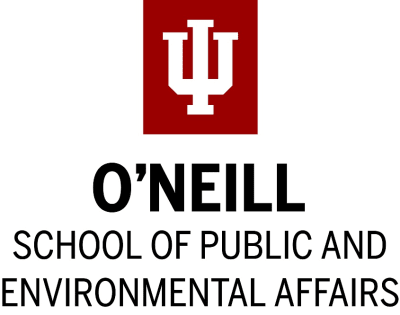
Online Master of Public Affairs (MPA)
Indiana University O'Neill School of Public and Environmental Affairs

Key Information
Campus location
Bloomington, USA
Languages
English
Study format
Distance Learning
Duration
2 years
Pace
Full time
Tuition fees
USD 1,350 / per credit **
Application deadline
Request info *
Earliest start date
Jun 2024
* priority deadline | final deadline: December 1
** non-residents: $1,350 / Indiana residents and qualifying military/veteran students: $661.44
Introduction
A Master of Public Affairs, or MPA, is one of the most versatile and valuable degrees available—a combination of the Master of Public Administration and the Master of Public Policy degrees. At the O’Neill School of Public and Environmental Affairs our students are prepared for public service jobs in our changing society in ways unmatched by other universities. Our MPA program builds leaders who will make a difference in our world.
Find the right balance for you
We recommend taking two courses a semester, but you may take more with permission from the faculty director. Summer courses are offered, too. Students in our program are able to juggle their careers, family obligations, and course work.
Our Online MPA program is delivered asynchronously, so you can complete coursework at any time of day, from anywhere in the world.
Gallery
Admissions
Curriculum
Be prepared to face society's greatest challenges
The O’Neill School MPA curriculum and degree requirements provide a foundational core addressing universal topics of social equity, climate change, ethical responsibilities, racial injustice, and diversity. Through these courses, you’ll learn leadership-focused, applicable skills needed to put knowledge into action.
A flexible 48 credit-hour program consisting of three components:
- Core courses
- 10 courses, 24 credit hours
- Your focus area and elective credits
- Five courses (15 hours) from your declared focus area, with up to an additional three courses (nine credit hours) of elective credit. You'll be required to focus in at least one of the following MPA areas: Public Management, Nonprofit Management, or Policy Analysis.
- Experiential component
- An experiential component completed through an internship or waived through prior professional experience.
Two courses per semester is recommended, but you may take more with permission from the faculty director. Summer courses are offered, too. Students in our program are able to juggle their careers, family obligations, and coursework — find the right balance for you.
Receive credit for your professional experience
You may be eligible to receive credit for the experiential component—typically three to six hours—for prior professional and military experience (PPE) or volunteer service in Peace Corps, AmeriCorps, or Teach for America.
Course, elective, and experiential component details
Core courses
The O’Neill Online MPA curriculum begins with 10 required core courses (24 credits)—your foundation to move up in the public affairs field:
- Managing and Leading Public Affairs (3 credits)
- Social Equity and Justice (1.5 credits)
- Designing and Managing Complex Projects (1.5 credits)
- Statistical Analysis for Effective Decision Making (3 credits)
- Evidence-Based Decision Making (1.5 credits)
- Public Management Economics (3 credits)
- Rights and Responsibilities: How Law Shapes Public Affairs (1.5 credits)
- Public Policy Process (3 credits)*
- Comparative and International Policy Process (3 credits)*
- Public Finance and Budgeting (3 credits)
- Capstone (3 credits)
*Students can choose to take Public Policy Process or Comparative and International Policy Process
Advanced electives
With the help of the faculty director, you will design an advanced curriculum of at least five electives that is suitable for your professional goals. You may need to take more than five, depending on the number of credits you receive from your experiential component, to meet the 48 credits required for the degree.
One of your electives can be the optional, weeklong residential program held at our Bloomington, Indiana, campus in early August.
Electives include:
- F526 Financial Management for Nonprofit Orgs
- F542 Governmental Financial Accounting and Reporting
- F609 Seminar in Revenue Theory and Administration
- F610 Government Budgeting and Program Analysis
- F667 Seminar in Public Capital and Debt Theory
- H549 Health Policy
- I516 Public Management Information Systems
- I519 Database Management Systems (tentatively first offered spring 2023)
- L563 Community Development
- L564 Local Government Management
- M561 Public Human Resource Management
- M575 Comparative Public Management
- M602 Strategic Management of Public and Nonprofit Orgs
- M654 Public Program Management and Contracting
- N521 Nonprofit and Voluntary Sector
- N522 Human Resource Management in Nonprofit Orgs
- N525 Management in the Nonprofit Sector
- N557 Proposal Development and Grant Administration
- N558 Fund Development for Nonprofits
- P507 Data Analysis and Modeling for Public Affairs
- P541 Benefit Cost Analysis
- P562 Public Program Evaluation
- V550 Communications for Public and Nonprofit Affairs
- V550 Designing Studies to Address Public Problems
- V550 Environmental Policy
- V550 Global Governance in the 21st Century
- V550 Global Security in the 21st Century
- V550 Marketing Management for Public and Nonprofit Orgs
- V550 Program Planning, Design, and Implementation (Hybrid)
- V550 Risk, Trust, Credibility, and Public Participation
- V550 US Foreign Policy and African Development
- V551 O’Neill Online Week - one week, in-person course
Experiential component
Relevant experience is key to professional growth. That’s why, as an O’Neill Online student, you must do ONE of the following:
- Complete an approved internship
- Receive credit for prior professional experience or volunteer service
- Complete an independent or group research project (V590 or V601)
The amount of experiential credit students receive varies. Some choose to do an internship for three to six credits, while others join the program with significant prior experience and receive the maximum nine credits. The fewer experiential credits, the more advanced electives you must take to meet the degree requirements.
If you’re interested in an internship, you must seek approval from the faculty director. The decision to seek credit for the internship is up to you.
You can receive credit for the experiential component—typically three to six hours—for prior professional and military experience (PPE) or volunteer service in Peace Corps, AmeriCorps, or Teach for America. To receive PPE credit, the experience must have been:
- Above entry level and require a college degree
- Full time, either paid or unpaid
- Within the last five years
- With a single organization for at least two years
- Explicitly related to an MPA career path
If you think you might qualify for PPE or service credit, please forward a copy of your resume for an official estimate.